-
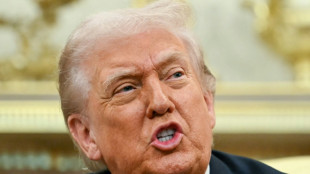 Trump threatens Spain ties over Iran war refusal
Trump threatens Spain ties over Iran war refusal
-
England hit Ukraine for six in Women's World Cup qualifiers

-
 Iran war threatens Trump fight with inflation
Iran war threatens Trump fight with inflation
-
Merz seeks early end to Iran war in Trump meeting
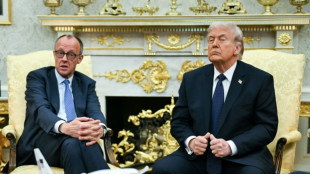
-
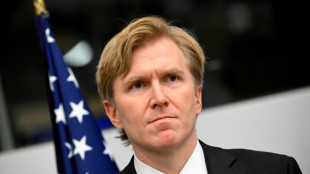 US says Israel killed Iran's leader
US says Israel killed Iran's leader
-
'Not Churchill': Trump ups criticism of Starmer over Iran strikes
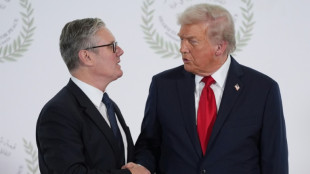
-
 Brazil's economy slows as high interest rates curb growth
Brazil's economy slows as high interest rates curb growth
-
Trump denounces UK, Spain over Iran stance
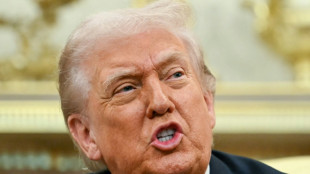
-
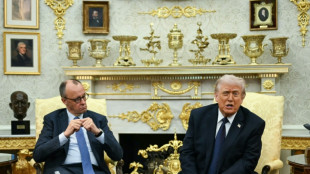 Trump says 'everything's been knocked out' in Iran
Trump says 'everything's been knocked out' in Iran
-
Polish doctors jailed for denying woman abortion
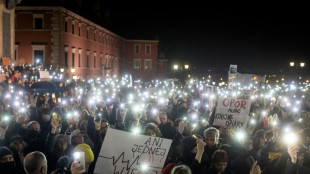
-
 Tehran resembles ghost town as bombs rain down
Tehran resembles ghost town as bombs rain down
-
US-Israeli strikes pummel Tehran, as Trump says 'too late' for talks

-
 US Homeland Security chief grilled over immigration crackdown
US Homeland Security chief grilled over immigration crackdown
-
Arteta fires back at critics of Arsenal's set-piece success

-
 2017 implosion of Argentine submarine was 'foreseeable,' trial hears
2017 implosion of Argentine submarine was 'foreseeable,' trial hears
-
Germany's Merz meets Trump for talks eclipsed by Iran war
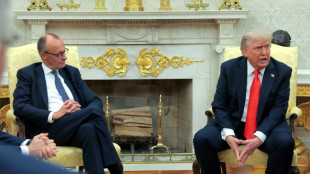
-
 Real Madrid's Rudiger tried to 'smash my face in': Getafe's Rico
Real Madrid's Rudiger tried to 'smash my face in': Getafe's Rico
-
England rip up team sheet for Italy Six Nations clash

-
 Real Madrid's Brazilian winger Rodrygo set to miss World Cup with knee injury
Real Madrid's Brazilian winger Rodrygo set to miss World Cup with knee injury
-
Man Utd 'hungry for more', says Carrick

-
 Flights to evacuate stranded travellers in Middle East
Flights to evacuate stranded travellers in Middle East
-
England make sweeping changes for Italy Six Nations clash

-
 Mideast war threatens to spark world energy crisis
Mideast war threatens to spark world energy crisis
-
Tens of thousands of Afghans displaced by Pakistan conflict

-
 Unbeaten South Africa face 'fresh start' in semi-final: Markram
Unbeaten South Africa face 'fresh start' in semi-final: Markram
-
Iran steps up attacks on Mideast economy in response to US-Israeli strikes

-
 'We back ourselves': Underdogs New Zealand eye T20 World Cup final
'We back ourselves': Underdogs New Zealand eye T20 World Cup final
-
UK cuts 2026 growth forecast, flags Iran war risk

-
 Guardiola says Premier League teams must adapt to set-piece threat
Guardiola says Premier League teams must adapt to set-piece threat
-
Will Iran take part in the 2026 World Cup?

-
 Afghans escape from Iranian cities to get home
Afghans escape from Iranian cities to get home
-
'Peaky Blinders' stars hit Brum red carpet for movie premiere

-
 Brazil's Flamengo sack coach Filipe Luis despite 8-0 win
Brazil's Flamengo sack coach Filipe Luis despite 8-0 win
-
England 'not fearing anything' against India, says Curran

-
 Global markets turmoil intensifies on Iran war
Global markets turmoil intensifies on Iran war
-
Iran targets Mideast energy industry and US missions

-
 Rahm accuses DP World Tour of 'extorting players' with LIV deal
Rahm accuses DP World Tour of 'extorting players' with LIV deal
-
Thousands of Afghans displaced by Pakistan conflict

-
 China, North Korea make winning starts at Women's Asian Cup
China, North Korea make winning starts at Women's Asian Cup
-
EU asylum applications down but Iran concerns mount

-
 Rahm accuses DP World Tour of 'exorting players' with LIV deal
Rahm accuses DP World Tour of 'exorting players' with LIV deal
-
Drones hit US embassy as vengeful Iran targets Mideast cities

-
 Mideast war exposes fragile oil, gas dependency
Mideast war exposes fragile oil, gas dependency
-
How the T20 World Cup semi-finalists shape up

-
 Oil extends gains and stocks dive as Middle East war spreads
Oil extends gains and stocks dive as Middle East war spreads
-
Warming El Nino may return later this year: UN

-
 Trump says US-UK relationship 'not like it used to be'
Trump says US-UK relationship 'not like it used to be'
-
Eight years on, trial begins in Argentina submarine implosion

-
 Beijing votes out three generals from political advisory body
Beijing votes out three generals from political advisory body
-
Oil extends gains and stocks dive as Iran conflict spreads

EU Residence permits: Record level to third nationals
The European Union (EU) has witnessed a significant increase in the number of residence permits issued to third-country nationals over the past decades. This trend has sparked a debate on whether such immigration represents a valuable opportunity for the EU's future or poses a burden to its member states. This article explores the reasons behind the proliferation of residence permits and examines the potential implications for the EU.
Understanding the Surge in Residence Permits
Economic Drivers
One of the primary reasons for the high number of residence permits is the economic demand within the EU. Many member states face ageing populations and shrinking workforces, which can hinder economic growth and strain public welfare systems.
- Labour Shortages: Sectors such as healthcare, engineering, information technology, and agriculture often experience shortages of skilled and unskilled labour. Immigration provides a solution by filling these gaps with third-country nationals.
- Innovation and Competitiveness: Attracting highly skilled professionals from around the world enhances the EU's competitiveness in the global market, fostering innovation and technological advancement.
Educational Opportunities
European universities and educational institutions are renowned globally, attracting students from non-EU countries.
- International Students: Many third-country nationals receive residence permits to study in the EU, contributing to cultural diversity and academic excellence.
- Knowledge Retention: Post-graduation, some students choose to remain in the EU, adding value to the labour market with their acquired skills and expertise.
Humanitarian Obligations
The EU upholds strong commitments to human rights and humanitarian assistance.
- Asylum Seekers and Refugees: Conflicts, persecution, and humanitarian crises in regions like the Middle East and Africa have led to an influx of individuals seeking safety in the EU.
- Family Reunification: Policies that allow family members to join relatives legally residing in the EU contribute to the number of residence permits issued.
Legal Frameworks and Policies
EU directives and national policies facilitate the issuance of residence permits.
- Blue Card Scheme: Designed to attract highly qualified workers, the Blue Card system provides a streamlined process for third-country nationals to live and work in the EU.
- Bilateral Agreements: Some member states have agreements with non-EU countries to encourage mobility and cooperation.
Opportunity for the EU's Future
Economic Growth and Sustainability
Immigration can stimulate economic activity and support public finances.
- Workforce Renewal: Immigrants often fill essential roles, ensuring the continuity of services and industries.
- Fiscal Contributions: Employed immigrants contribute to tax revenues and social security systems, helping to offset the costs of an ageing native population.
Cultural Enrichment and Diversity
Diversity fosters creativity and innovation.
- Cultural Exchange: Immigrants bring new perspectives, traditions, and ideas, enriching the social fabric of EU societies.
- Soft Power: A multicultural population enhances the EU's global influence and diplomatic relations.
Addressing Demographic Challenges
Immigration helps mitigate demographic imbalances.
- Population Decline: In countries with low birth rates, immigrants contribute to population growth and demographic stability.- Support for Elderly Populations: A younger immigrant workforce can support the increasing number of retirees.
Potential Burdens and Challenges
Social Integration
Integrating immigrants into society poses challenges.
- Cultural Differences: Language barriers and cultural disparities can hinder social cohesion.
- Education and Training: Additional resources may be required to provide language education and vocational training.
Economic Pressures
There are concerns about the strain on public services.
- Welfare Systems: Increased demand for healthcare, housing, and social services can pressure budgets, especially if immigrants face unemployment.
- Labour Market Competition: Some fear that immigrants may compete with native workers for jobs, potentially affecting wages and employment opportunities.
Political and Social Tensions
Immigration can become a polarising issue.
- Rise of Populism: Anti-immigrant sentiments can fuel nationalist movements and political polarisation.
- Security Concerns: Issues related to border control and illegal immigration raise security considerations.
Balancing Act: Policies for Sustainable Immigration
For immigration to serve as an opportunity rather than a burden, strategic policies are essential.
Effective Integration Strategies
- Education and Language Acquisition: Investing in programmes that facilitate language learning and cultural orientation.
- Employment Support: Providing pathways for immigrants to enter the labour market commensurate with their skills.
Economic Planning
- Targeted Immigration: Aligning immigration policies with labour market needs to ensure that incoming individuals fill critical roles.
- Support for Innovation: Encouraging entrepreneurs and investors through favourable conditions and support networks.
Social Cohesion Initiatives
- Community Engagement: Promoting interactions between immigrants and local communities to build mutual understanding.
- Anti-Discrimination Laws: Enforcing legislation that protects the rights of immigrants and promotes equality.
Conclusion: A Future Shaped by Immigration
The influx of third-country nationals through residence permits presents both opportunities and challenges for the European Union. When managed effectively, immigration can address demographic issues, bolster economic growth, and enrich societies culturally. However, without careful planning and integration efforts, it may lead to social tensions and economic pressures.
The key lies in implementing comprehensive policies that maximise the benefits of immigration while mitigating its challenges. By fostering an inclusive environment and leveraging the potential of immigrants, the EU can turn what some perceive as a burden into a significant advantage for its future.

Norway: Russians sceptical about Russia's terror against Ukraine

Nepal: Crowd demands reinstatement of the monarchy

Europe: Is Bulgaria "hostage" to a Schengen debate?

EU: Netherlands causes headaches in Brussels

Israel in the fight against the terror scum of Hamas

Italy: Storm Ciarán brings disastrous record rainfall

What remains of the EU leader's visit to Kiev?

Gaza: Hamas terrorists responsible for expulsion

Vice-Chancellor Habeck: Empty words without action?

Israel: More bodies, weeks after Hamas terror attack
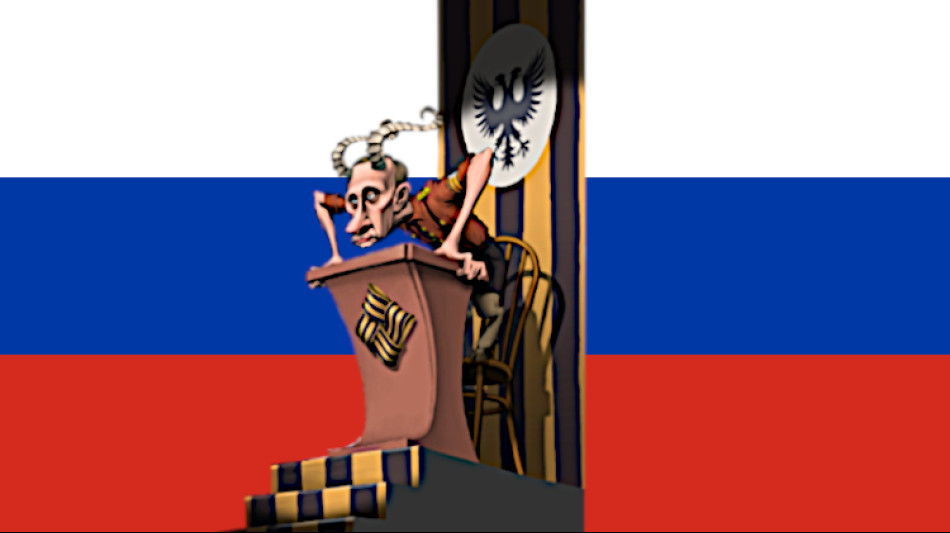
Israel politician threatens russian terror state on Russian TV




